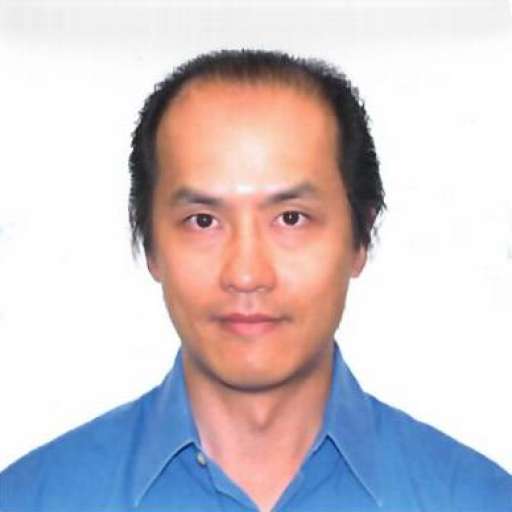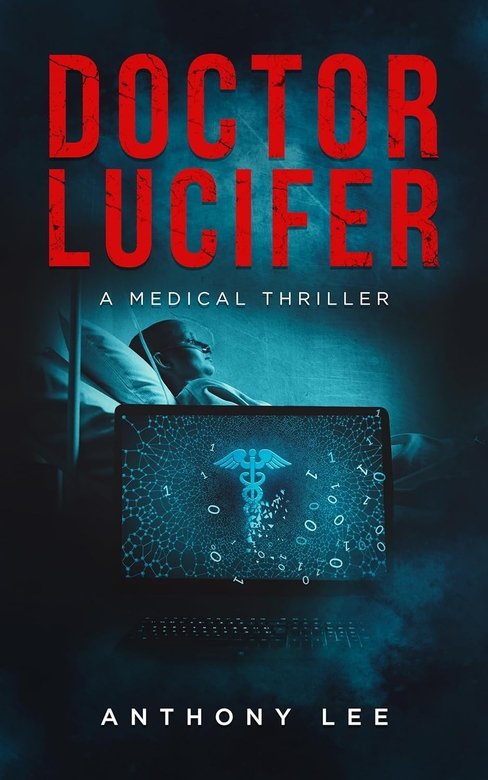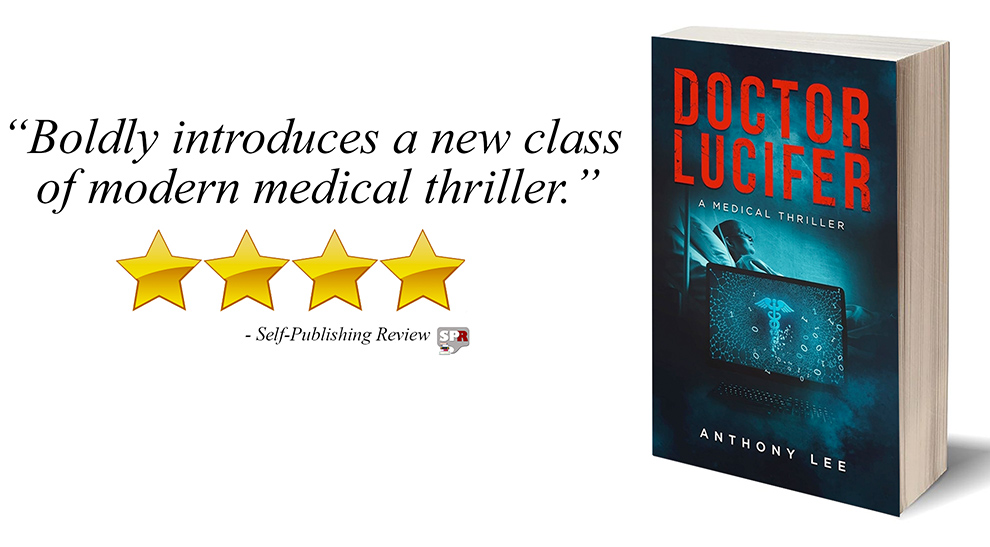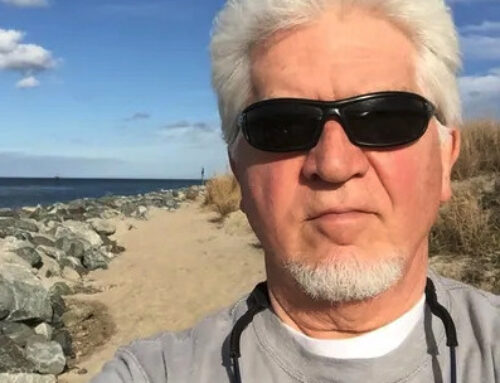 Anthony Lee has a unique background in medicine. After graduating from medical school, he switched from clinical medicine to health technology assessment, analyzing new medical tests and treatments in a career spanning over 15 years.
Anthony Lee has a unique background in medicine. After graduating from medical school, he switched from clinical medicine to health technology assessment, analyzing new medical tests and treatments in a career spanning over 15 years.
As a writer, he found inspiration in a variety of literary works, both contemporary and classic. He has especially discovered the excitement of thriller novels, including medical thrillers by authors like Robin Cook and Tess Gerritsen, crime fiction by Michael Connelly, and Ian Fleming’s James Bond novels. After years of brainstorming his own story ideas, he finally wrote and self-published his first medical thriller novel, Doctor Lucifer, in 2024.
When he is not writing, he enjoys things like music, movies, video games, sports, and travel. He lives in Northern California.
Tell us about your book.
Doctor Lucifer, my debut novel, is a medical thriller about healthcare and cybersecurity. Imagine a global cyberattack that renders computer networks everywhere vulnerable to hackers, and while chaos ensues from widespread hacker activity, one such hacker decides to kill a doctor’s patients in a hospital just by remotely altering their digital medical records. The consequences can be devastating, with the doctor being blamed for medical errors he himself did not commit. The main character is an intelligent but cynical internist who scrambles to avert one medical crisis after another with the help of the hospital’s information technology specialists. All of this occurs while he experiences emotional turmoil from threats to himself and his career.
Why did you want to write a book?
I have been inspired by so many stories as a reader that I couldn’t help but begin to brainstorm my own story ideas. I developed them so much that I felt it would be a shame to not put them down on paper and turn them into exciting tales.
 Why did you choose to self-publish?
Why did you choose to self-publish?
I have self-published my first novel because I ultimately had no other options. For a little over three years, I had sent query letters about Doctor Lucifer to 172 literary agents (yes, I kept track of all of them in a spreadsheet!) but received no offers for representation. Most agents rejected my query or did not respond to them, and the few who requested my full manuscript ultimately did not provide the opportunity for me to sign with them. But rather than give up on publishing my story altogether, I decided that I would self-publish and promote my book widely, in hopes of achieving success comparable to that of an author working with a traditional publisher.
What tools or companies did you use, and what experience did you have?
I decided on two self-publishing platforms: (1) Amazon Kindle Direct Publishing because of the massive customer base of Amazon and (2) Barnes & Noble Press because of its association with a major nationwide bookstore chain. This was my first time using these services, but the instructions and user interface were quite easy to follow.
For editing and cover design, I followed Barnes & Noble Press’s recommendations of seeking an editor through Reedsy and 99designs, respectively. The Reedsy editor I worked with was real helpful with fine-tuning my manuscript. For 99designs, I paid to hold a cover design contest, where I described what kind of book cover I wanted, received design concepts from multiple designers, and selected the one I liked the best. The designer of the cover I chose for Doctor Lucifer has done such a great job with it, and I am sure he is enjoying the prize money funded by the fee I paid.
What do you think are the main pitfalls for indie writers?
To be an author is to be in an extremely competitive environment, no matter what the route of publishing is. With traditional publishing, literary agents act as gatekeepers to choose the best writing but have to select among countless queries. Self-publishing is perhaps even more competitive because the barriers to entry for publishing are much lower but there are thousands, if not millions, of independent authors.
With this in mind, I would say that there are two major pitfalls for indie writers: (1) low-quality writing and (2) lack of promotion of one’s work. A great deal of effort and commitment is required for both in order to stand out among an extremely large crowd.
How do you deal with writer’s block?
I have a two-step process to deal with writer’s block. One is to take a break and do anything else not related to writing at all, particularly relaxing hobbies. That makes it easier to do the second step, which is to be flexible with ideas for my book. I can recall moments with drafting my first novel where I suddenly had new ideas for the story that I did not think of before, because I was too rigidly focused on my initial ideas the first time around.
Tell us about the genre you wrote in, and why you chose to write this sort of book.
As someone with a medical background and an interest in medical thriller stories, I was naturally inclined to contribute something to the medical thriller genre. However, I was becoming less satisfied with books in the genre. The premises and twists started becoming predictable, especially when the villain is a member of the medical or scientific community. Plus, I felt medical thriller stories were lacking in character and emotional depth, relative to books of other genres. I wanted to write medical thrillers that I hope can take the genre to the next level, with more original premises, greater character development, and exploration of themes related to medicine and society.
Who are your biggest writing inspirations and why?
I have a variety of literary inspirations, but if I had to name just a few authors, it would be the following (all of whom I mention in my bio because that’s how much they influenced my writing):
1. Robin Cook – He is the father of the medical thriller genre, after all. His novel Coma is a classic, too.
2. Tess Gerritsen – She has the skill of writing both medical thrillers, like the space-oriented Gravity, and crime thrillers featuring detective Jane Rizzoli and medical examiner Maura Isles, a series that I enjoy.
3. Michael Connelly – He writes the most exciting, engaging, and jaw-dropping thrillers in both crime fiction and legal fiction.
4. Ian Fleming – His James Bond spy thrillers are fun, and I do enjoy seeing the psychology of some of the villains. These stories remind me that in order to have a strong hero, you need an equally strong villain to go up against.
Why did you write about this particular subject?
In my past life as a medical student and, briefly, medical resident, I got to see one thing up close: the transition from paper medical records to electronic medical records going on in healthcare facilities. Whenever I see anything done digitally, I always wonder how evildoers with advanced computer skills could sabotage such technology. Yes, even electronic medical records. And with much talk about cybersecurity and the occurrence of cyberattacks in the past couple of years, I knew it was time to write my medical thriller about a computer hacker causing death and destruction for a hospital physician. In fact, there are already several reports of ransomware attacks hitting hospitals, meaning the events of my story may not be as farfetched as one may think.
What’s next for you as an author?
Now that I have self-published my first novel, I shall keep going and write my follow-up novel. I am writing a series of medical thrillers featuring the same protagonist, a proficient but disillusioned doctor named Mark Lin. I want to throw him into many intense situations and see him prevail, all while witnessing his growth and maturity as someone gradually becoming more of an empathetic human being.
Author Links
Get an Editorial Review | Get Amazon Sales & Reviews | Get Edited | Get Beta Readers | Enter the SPR Book Awards | Other Marketing Services























Leave A Comment